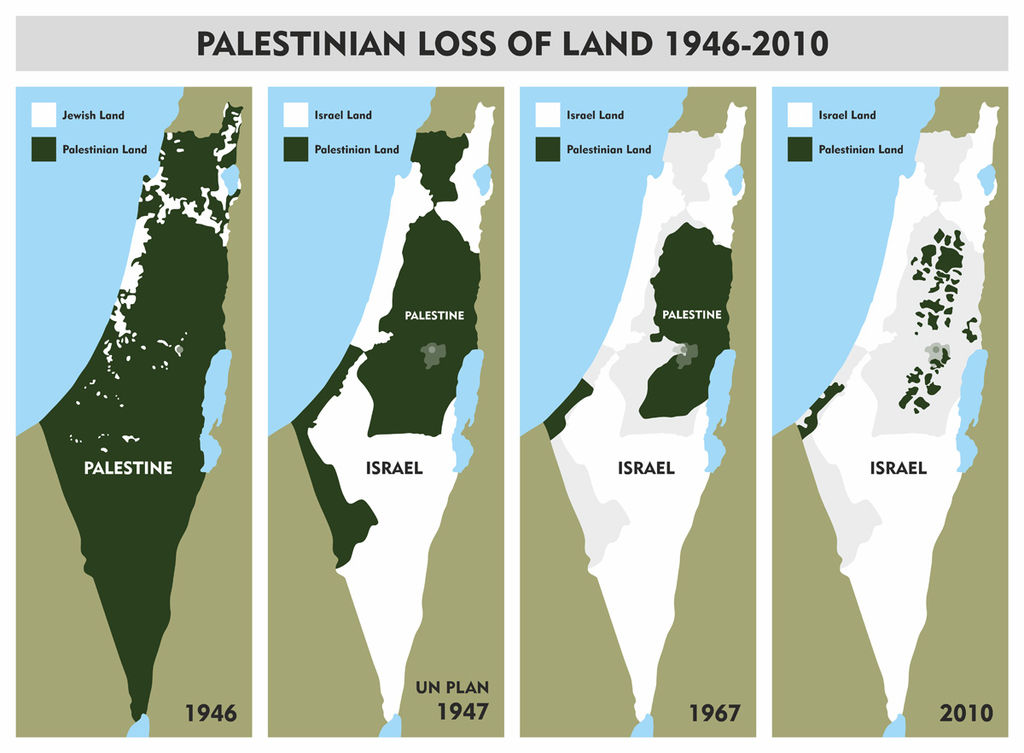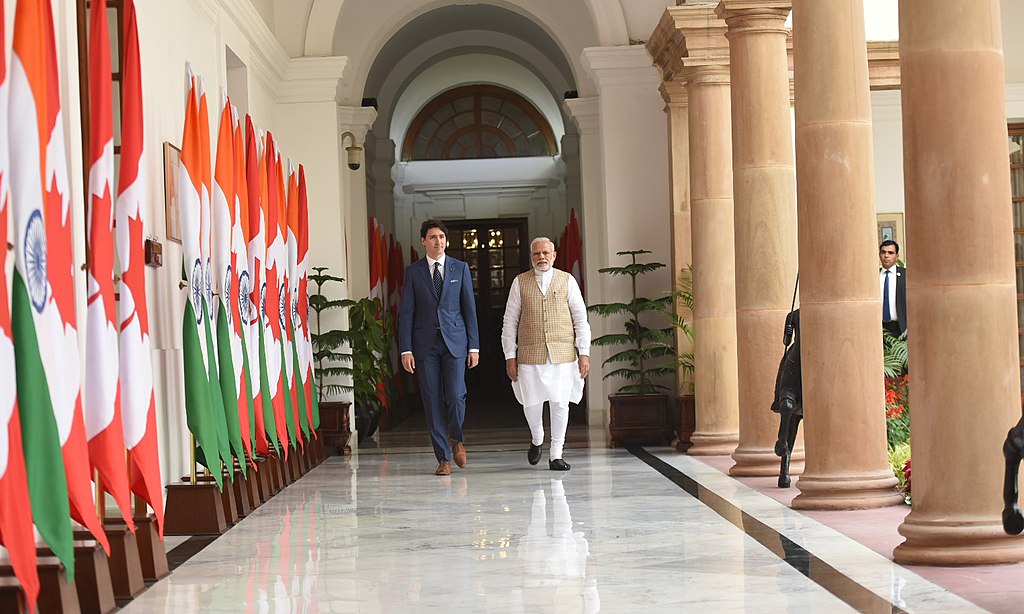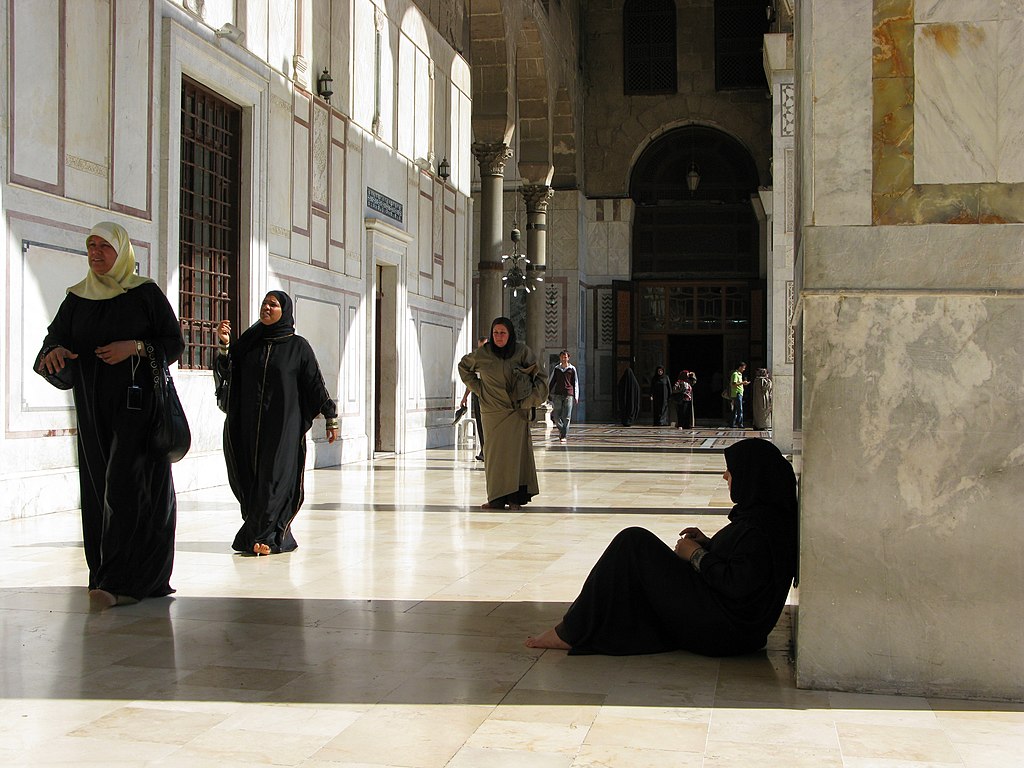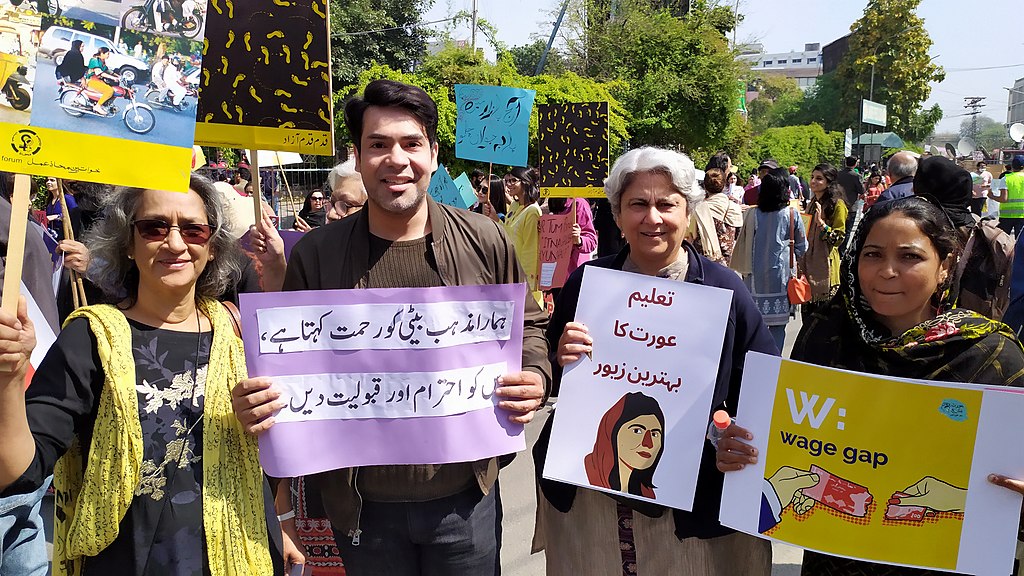By Dr. Ayesha Aijaz
‘At Basel, I founded the Jewish State. If I said it out loud today, I would be answered by universal laughter. Perhaps in five years, and certainly in fifty, everyone will know it.’[1] ~ (Theodor Herzl writes in his diary about Basel Zionist Conference, 1897 where Zionism was officially coined)
The birth of the State of Israel on 14th May 1948 is a turning point in the history of the Middle East and one of the most significant events of the twentieth century. Based on Zionist ideology, Israel came into being as a ‘fulfilment of the promise of the Jewish scriptures’. Since its inception, Israel centres its relations with the native population and neighbouring countries on an existential threat. Alliances, ties, negotiations and treaties all base on Israel’s so-called security concerns faced from within and outside the country. But Israel’s Zionist foundations and expansionist aims have a major role to play in the volatile situation of the Middle East.
Israel, by definition and by essence is a Jewish state and was formed to give the Jews, living in different parts the world after the Diaspora, a national home. While Zionist ideology laid the foundation stone of the state, the native Arab population and the seemingly mighty neighbours joined by the rhetoric of common Arab roots, language and cultures became the immediate security threat for the country. But very soon Israel’s man and military power was evident to her as well as to the hollow and deeply divided Arab world. The idea that there was no power in the neighbouring world that matched the military strength of Israel became evident after repeated humiliating defeats encountered by Arab forces, but the case built by Israel as, David surrounded by the forces of Goliath, continued to play a significant role in Israel’s expansionist plans based actually on the ideas of Zionism.
ZIONIST FOUNDATIONS OF ISRAEL:
Zion is the biblical name for Jerusalem.[2] Political Zionism is a concept of the late nineteenth century, coined by Theodor Herzl, a Hungarian secular Jew, in the background of strong anti-Semitism in Europe. His book ‘The Jewish State’ provided a detailed plan for a state where Jews, who were not a religious group but a nation in his views, were to live in peace. In 1897, at the Basel Zionist Conference, the idea of Zionism was officially founded i.e. a ‘Jewish national home’ in Palestine. Herzl mentions in his diary,
‘At Basel, I founded the Jewish State. If I said it out loud today, I would be answered by universal laughter. Perhaps in five years, and certainly in fifty, everyone will know it.’[3]
The three strands of Israel’s identity i.e. religion, nationalism and the Holocaust, as described by Michael Barnett, help Israel portray herself to be in an isolated state and vulnerable to security concerns from different fronts.
‘While all national identities differentiate between ‘us’ and ‘them’, arguably the centrality of religion, nationalism and the Holocaust in Israel’s identity, make these effective and cognitive boundaries more severe and austere’.[4],[5]
Chaim Weizmann, the elected President of World Zionist Organisation was the strongest link between ideas initiated by Herzl and the British Empire. He put all his efforts to win British support for ‘Jewish Commonwealth in Palestine’ belittling the risk of Arab opposition and portraying them ‘a tiny fraction of large Arab nation’[6]– Balfour Declaration, a letter written by British Foreign Secretary Arthur J. Balfour, promising a national home for Jewish people under British support came as a major achievement for Zionists in 1917. Jews were only 10% of the population. The 90% were a non-existent entity for Weizmann as well as the British. The declaration opened the doors of Palestine to the Jews and the Zionist ideas started becoming clearer with time. Although diplomacy was always the way to the goal, and avoidance of the term ‘state’ and preference for usage of ‘a national home’ was the trend, but Weizmann when asked at a peace conference in Paris defined the Jewish National home as ‘to make Palestine as Jewish as England is English.’[7] The Arabs were not partners in any negotiations and Weizmann’s policy was uncompromising in terms of Jewish settlement goals in Palestine.
Jabotinsky, a staunch Jewish nationalist and the founder of Revisionist Zionism, believed in the supremacy of the Jews. For him, Jews were the source of budding Western civilization in the backward and stagnant East. While he acknowledged that no voluntary agreement was possible between alien settlers and native population, the idea of return to Palestine could not be bargained.
‘We must either suspend our settlement efforts or continue them without paying attention to the mood of the natives. Settlement can thus develop under the protection of a force that is not dependent on the local population, behind an iron wall which they will be powerless to break down.’[8]
For him, an iron wall, i.e. a strong invincible force, was the answer to the Arab problem. Negotiations would only be fruitful if the Zionists were physically and militarily stronger than the natives. Peaceful coexistence is a possibility only after overpowering the threats, materially and by force. For Jabotinsky, there was nothing immoral about the concept of the ‘iron wall’, if the idea of Zionism and right to return to the Zion was to be achieved. The latter is a sacred truth, so any step taken in whatever shape, no matter how immoral it looks to the world, becomes automatically sacred.[9]
Arab resistance was very natural in these circumstances. Riots against the Jews took the shape of full-blown upheavals. Arabs rejected all proposals put forward by the British. David Ben Gurion, the founder of the State of Israel, pushed the British for establishment of a Jewish state after increasing Arab resistance. Lord Peel’s commission report suggested partition of the land in two states in 1937. Although the Zionist leaders were divided on the issue of borders of the states, Ben Gurion’s idea was to accept it for the start and the rest of the country would soon be under Jewish rule.
‘Erect a Jewish State at once, even if it is not in the whole land. The rest will come in the course of time. It must come.’[10]
This was the foundation of Israel: Religion, Zionism (Jewish nationalism), a history of Diaspora, and a strong belief in moral right to return. As perceived by Jabotinsky, the settlers would naturally be unwelcomed by any native population and that is where importance of security would come into play. Thus, pillars of unmatched security and powerful military were absolutely essential to support the foundation stone of identity. Zionist movements developed their own military power in order to be independent of any outside support for survival through the paramilitary organisation called Haganah, and Irgun. In the backdrop of end of World War II, the Holocaust and strengthening Zionist military force, General Assembly of the United Nations passed a resolution in favour of the partition of Palestine in 1947. In 1948, the state of Israel was born in the midst of confrontation with Arabs, within and outside the state.
THE CONFLICT: A NATURAL OUTCOME OF OCCUPATION:
The Arab-Israel conflict is as old as the proclamation of Israel. The Jewish population in Palestine increased dramatically from 10% (54,000) to 32% in 1947. With military supremacy, Zionists were able to gain control of the territories defined in the UN partition plan. The first war against the new state began immediately with Egypt, Jordan, Syria, Iraq and Lebanon but due to disunity, poor communication, absence of reliable intelligence and poor leadership, coordination and planning[11], the Arab states failed badly. Also, the military balance was in favour of Israel with total number of Arab troops of only 25,000 and IDF over 35,000 increasing to 65,000 within two months and 96,441 in seven months. As Avi Shlaim comments, ‘In this war, as in most wars, the stronger side prevailed.’[12] Armistice was signed between Israel and Arab states in 1949. But the border tensions remained high.
The subsequent crisis came in the shape of the Suez war of 1956. Colonel Gamal Abd al-Nasser of Egypt had reached an agreement with the British to withdraw from the military base in the Suez Canal. Israel for her own security wanted the British to remain in the area, therefore a spy ring was activated so as to blow up the installations and give reason to the British not to vacate the area. Spies were captured, tried and hanged by Egypt. Israel’s public saw it as Egypt’s hostile attitude towards their state. To satisfy the public with government’s prompt action and state’s military superiority, Israel attacked Gaza and caused heavy Egyptian casualties. Nasser signed arms deal with Soviet Union, which caused Israel to get more arms from France. Britain not happy with Gamal refused to finance Aswan Dam. Nasser’s retaliation came in the form of nationalising the Suez Canal which was the lifeline for the colonialists to rule the other side of the world. Britain, France and Israel attacked Egypt in the Suez War of 1956. The Israeli army managed to occupy the Sinai Peninsula within 100 hours[13]and Sharm al-Sheikh, thus opening the Straits of Tiran, which were Israel’s primary route to East Africa but had been blocked by Egypt for several years.
In 1967 the six-day war was the most remarkable military victory in the history of Israel. 5th June to 10th June, Israel had occupied the West Bank and the Golan Heights, the Gaza Strip and the entire Sinai Peninsula. Arabs suffered from a humiliating defeat, tipping the balance of power heavily in favour of Israel. ‘The annexation of East Jerusalem, was the first and the most dramatic assertion of Israel’s claim to sovereignty over its ancient homeland. Zion, was at the heart of Zionist dream for the restoration of a Jewish kingdom in Palestine.’[14]
The political and military equation began to change after this war. Syria and Saudi Arabia displayed willingness to recognize Israel, and Egypt and Jordan signed peace treaties. The demand of surrendering the territories occupied in 1967 remained prominent in exchange of recognition and peace with Israel throughout the post war era. The major argument in retaining the West Bank was security-based, as it would form a barrier against any attacks from the East. But the West Bank also formed part of ancient Israel (Judaea and Samaria). The Revisionist Zionist Likud party kept rejecting the idea of any kind of surrender even if peace with neighbours and natives became impossible. Their expansionism towards the fulfilment of a Jewish state did not take into account the opportunities of peace offers. Israel’s military supremacy and invincibility throughout these years had made the expansionist goal much easier even if it meant the subjugation of the native population. Negotiations, compromise and diplomacy did not hold much value due to the ‘iron wall’, the unconquerable force once perceived by Jabotinsky, which had later transformed into a literal physical reality.
THE MIGHTY OPPRESSOR AND THE HELPLESS NATIVES:
The Palestinian problem remains a real one until today. Israel’s population reached six millions in 1998, nearly ten times what it had been in 1948.[15]Israel’s war of independence in 1948 was Palestinian’s Nakba (disaster) when 780,000 Palestinians, two-thirds of country’s population were driven out by Zionist troops and design.[16]The remaining population was denied any political rights as if they were non-existent in the flow, due to the Zionist program, which had to be implemented by any means necessary. Destruction of an existing society in 1948, conquest of West Bank and Gaza in 1967, the invasion of 1982 with 17,500 Lebanese and Palestinian dead, the Sabra and Shatila massacres; the continuous assault on Palestinian schools, refugee camps, hospitals, civil installations[17] was all a show of asymmetrical power unwilling to create a peaceful society meant for coexistence. Israel’s security issues arise not only from it being a product of Zionist ideology but, simply put, an occupant in a land where the native population has no rights whatsoever despite Israel’s big claims of being democratic. The disparity of power between Israel and the native population also nullifies the security argument especially from inside the state, when Palestinians have no army, air force, tanks or sophisticated defences of any kind.
‘There can be no conceivable peace, in my opinion, that doesn’t tackle the real issue, which is Israel’s utter refusal to accept the sovereign existence of a Palestinian people that is entitled to rights over what Sharon and most of the people supporting him consider exclusively to the land of Greater Israel, i.e. the West Bank and Gaza.’[18]~ Edward Said
A French philosopher Ernest Renan once said, ‘A nation is a group of people united by a mistaken view about the past and a hatred of their neighbours.’ In Israel’s case, the view of the past is not mistaken. The Diaspora, the Holocaust, and anti-Semitism of Europe are a horrible reality. But the translation of a terrible past into an uncompromising dream with results like massacres, subjugation, violation of international laws and expansionism, has given rise to merciless atrocities and has put at risk, the peace of the world. Security for Israel may be a genuine concern and will always be, not because the world is bent upon being anti-Semitic, but an oppressor will always be seen as an oppressor, no matter which part of the world he exists in. Every native population will see an alien settler with concern and the peaceful co-existence would never come into being if the settler’s inflexible passion or hunger for fulfilment of a dream brings endless tragedies, bloodshed and fears for the natives.
The views expressed herein may not necessarily reflect the views of JI FAD and/or any of its affiliates
REFERENCES:
[1]A. Shlaim, The Iron Wall, Israel and the Arab World (The Penguin Press, 2000), p.3
[2] Ibid, p.1
[3]Ibid, p.3
[4]M. Barnett, Culture, Strategy and Foreign Policy Change, Israel’s Road to Oslo http://home.gwu.edu/~barnett/articles/1999_israel_ejir.pdf
[5]S. Telhami, M. Barnett,Identity and Foreign Policy in the Middle East (Cornell University Press, 2002), p.58
[6]A. Shlaim, The Iron Wall, Israel and the Arab World (The Penguin Press, 2000), pp. 6-7
[7]Ibid, p.8
[8]Ibid, p.13
[9]Ibid, p.15
[10]David Ben Gurion, Letters to Paula,(London, 1971), 153-157, A. Shlaim, The Iron Wall, Israel and the Arab World (The Penguin Press, 2000) p. 21
[11]E. L. Rogan, A. Shlaim, The War for Palestine, Rewriting the History of 1948, 2nd Edition (Cambridge University Press, Cambridge, 2007), pp. 80-81
[12]Ibid
[13]A. Bregman, Israel’s War, A History Since 1947, 3rd Edition (Cornwall, 2010), p. 59
[14]A. Shlaim, The Iron Wall, Israel and the Arab World (The Penguin Press 2000), p. 251
[15]A. Shlaim, The Iron Wall, Israel and the Arab World (The Penguin Press 2000), p. 597
[16]E. Said, The Consequences of 1948, E. L. Rogan & A. Shlaim (ed.), The War for Palestine, 2nd Edition (Cambridge University Press, Cambridge, 2007), p.248
[17]E. Said, The End of Peace Process: Oslo and After (Granta Books, London, 2002), p. xv
[18]Ibid, p. xv






